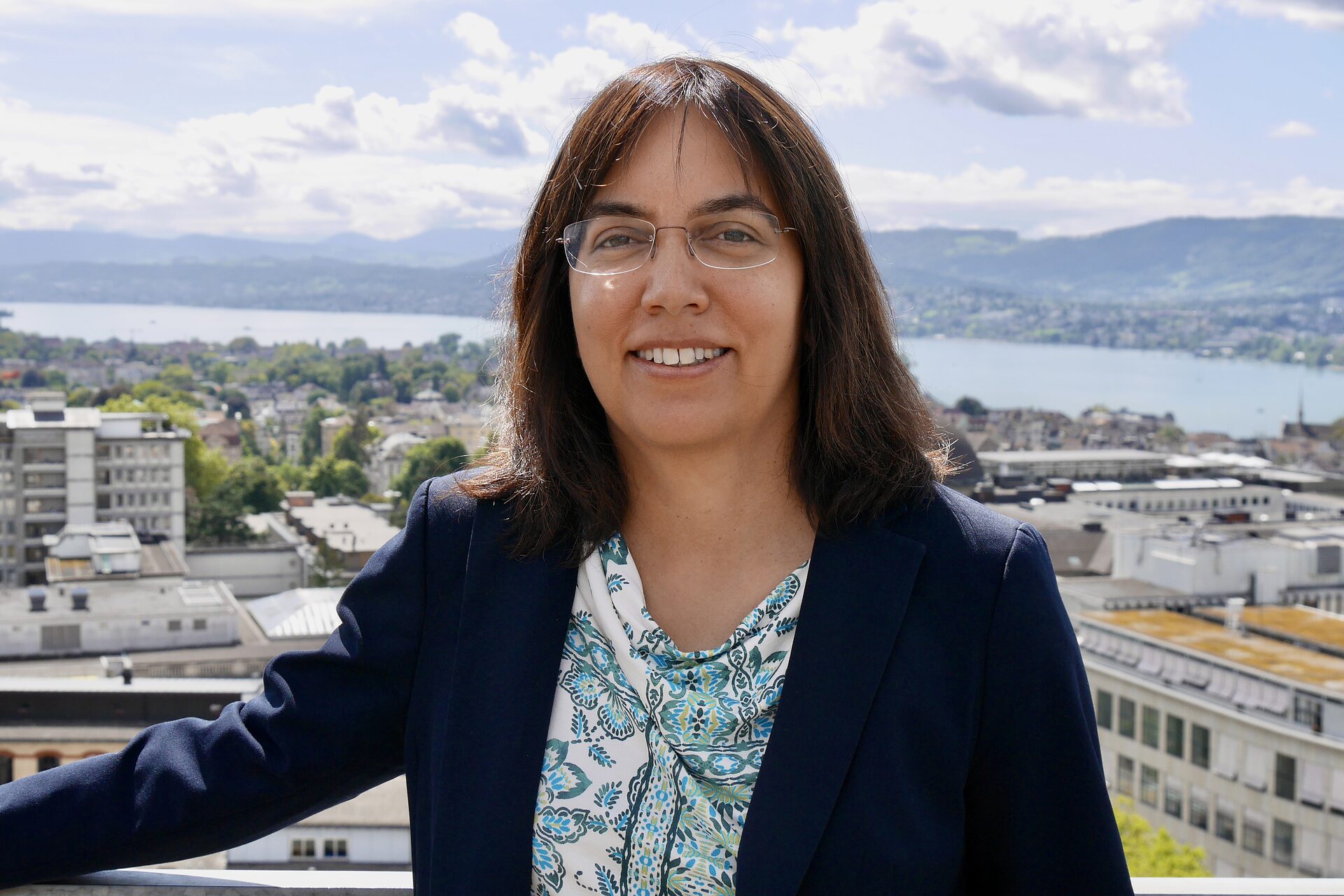DBU German Environmental Award for climate researcher Sonia Seneviratne
> Communiqué de presse en français voir ci-dessous
Osnabrück/Zurich. This year, the German Federal Environmental Foundation (DBU) is awarding the German Environmental Prize to climate researcher Prof. Dr. Sonia Isabelle Seneviratne. According to the DBU, she has made the interactions between soil moisture, vegetation, and the atmosphere visible and brought them into the international discourse as an excellent researcher with a high level of personal commitment. The professor at the Swiss Federal Institute of Technology Zurich (ETH Zurich) shares the DBU’s German Environmental Award, worth a total of 500,000 euros, with the management duo Lars Baumgürtel and engineer Dr Birgitt Bendiek from the steel galvanising company ZINQ, headquartered in Gelsenkirchen. German Federal President Frank-Walter Steinmeier will hand over the award on October 26 in Chemnitz.

The importance of soil moisture as a key variable in the climate system
Seneviratne is a “brilliant climate scientist who has gained international renown for her groundbreaking studies in the field of land-climate dynamics and whose expertise is in demand worldwide,” says DBU Secretary General Alexander Bonde. The ETH professor used interdisciplinary research and innovative methods to demonstrate how soil moisture, plants and the atmosphere interact and exacerbate climate change. Bonde: “With scientific perseverance, she has raised awareness of crucial factors in global warming. Thanks to her, we know how important soil moisture is as a key variable in the climate system.” According to Bonde, the German Environmental Award also honours Seneviratne’s “outstanding climate protection communication with the goal of preserving a liveable planet,” says the DBU Secretary General.
Approximately two-thirds of total precipitation evaporates on the continents.
Born in Switzerland, Seneviratne first studied biology in Lausanne, then environmental physics at ETH Zurich. “Mrs. Seneviratne has combined both disciplines in an outstanding way and provided new insights into the interactions between the water and carbon cycles,” said Bonde. “It is thanks to her and her team that global climate models now take the influence of soil moisture, vegetation, and evaporation on the climate system into account more clearly than before.” Seneviratne explains the connections as follows: On the one hand, on average, about two-thirds of all precipitation evaporates on the continents. On the other hand, land vegetation actually stores around 30 percent of climate-damaging greenhouse gas (GHG) emissions such as carbon dioxide (CO2). This process is known as a CO2 sink. However, it is precisely this ecosystem function that is at risk. What many people do not know is that “the effect as a CO2 sink depends largely on sufficient soil moisture,” explains Seneviratne. “If a plant is at risk of dehydration, it closes up to retain moisture.” The negative side effect is that CO2 absorption for photosynthesis also stops. According to Seneviratne, vegetation loses its ability to act as a CO2 sink during periods of drought. Furthermore, evaporation consumes a great deal of energy from the atmosphere. Without evaporation, “extremely dry soils can cause temperatures in the atmosphere to rise sharply,” says the climate researcher. Soil moisture then also plays a key role in connection with heatwaves.
From the Intergovernmental Panel on Climate Change to the national glacier initiative
In addition to her “excellent research and teaching,” Seneviratne has, in Bonde’s words, “made it her mission to warn society about the consequences of climate change and to promote climate protection and climate adaptation.” Among other things, she has been a member of the board of the Intergovernmental Panel on Climate Change (IPCC) since 2023, where she is vice-chair of Working Group I. Previously, she was the coordinating lead author of the sixth IPCC report and one of the lead authors of the chapter “Weather and Climate Extremes in Climate Change.” As one of Switzerland’s best-known climate ambassadors, she supported the Glacier Initiative, which indirectly led to Switzerland’s Climate and Innovation Act, which came into force at the beginning of 2025. Seneviratne’s research contributed significantly to the National Drought Platform, an early warning system coordinated by the Swiss Federal Office of Meteorology and Climatology (MeteoSwiss) that has been available online since 2025. “Exemplary” is what Bonde called it “that Seneviratne’s university research has led to long-term monitoring because it has become the basis for soil moisture measurements throughout Switzerland, an instrument of high social relevance“.
Language talent with attitude and commitment sets an example for climate protection
Seneviratne speaks four languages and is considered a proven expert who is able to explain complex issues in an understandable way. This is one reason why she is a welcome guest on both multilingual Swiss television (SRF) and in international media. She also writes for the university’s own “Zukunftsblog” and was a climate columnist for the tabloid newspaper “Blick” for two years. Her central message: reduce CO2 emissions. The researcher, who usually travels by train, also demonstrates her commitment and dedication in her everyday life. Bonde: “The award deliberately honours international science, especially climate science.” This is coming under increasing pressure from the media and politicians—not least due to false reports and conspiracy theories. “Fact-based research and communication are crucial in tackling the global climate crisis,” said the DBU Secretary General.